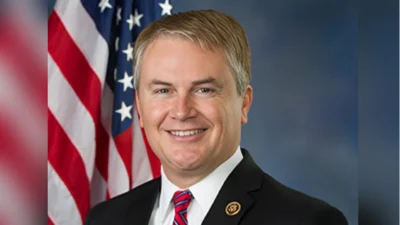Thank you, Mr. Chairman for holding this hearing. This is an important and timely topic.
Agricultural exports are important to my home state of New York and to our country as a whole. Many markets are still protected or even closed to our farm, ranch, and dairy products. We need to open up those markets, and new trade agreements are one way to do that.
But it isn’t just foreign governments that deny our farmers and ranchers access to other markets. In the case of Cuba, our very own government stands in the way. I know the Chairman does not agree with me on this issue, and I respect his views on the matter. But in my view, the embargo is not working, not for the Cuban people, and not for us. Mr. Chairman, I hope we can work together to find a path forward on this important issue.
Another issue we need to discuss today is food safety. Without a doubt, some of our trading partners put in place laws that they say are about food safety, but they are really about keeping U.S. products out of their markets. We need strong rules in our trade agreements to prevent that from happening. But I want to be sure that we don’t agree to a set of rules that ends up tying the hands of our own regulators who are trying to keep our people safe, or are trying to protect our crops from invasive pests.
We need to eliminate bogus food safety laws, but we also need to preserve legitimate ones.
Our regulators are increasingly having to defend their rules at the WTO. In the first 13 years of the WTO, U.S. sanitary measures were challenged just twice. But in just the last five years, U.S. measures have been challenged five times.
It’s important for us to remember what makes U.S. products so attractive to other markets. Their quality. And our regulatory regime supports that quality. Our regulators do their best to make sure that we don’t produce tainted food. They protect our growers by doing their best to keep out invasive pests. We need to make sure that any rules we sign onto in our free trade agreements allow them to keep doing that.
Finally, let me say a word about the Trans-Pacific Partnership (TPP) negotiations. Those negotiations are at a critical stage, and our attention needs to be focused on ensuring an outcome that Congress can support. We need to work with our colleagues, with stakeholders, and with the Administration on the many major outstanding issues, including tariff and non-tariff barriers on agricultural products.
Some of our trading partners - Japan, in particular - have not demonstrated an interest in opening their agricultural markets (nor has Japan shown an interest in opening its automotive market, for that matter). Unfortunately, Japan’s position in these negotiations is a real problem that needs to be resolved.
But some say the problem is that we haven’t passed Trade Promotion Authority legislation - that Japan won’t get serious until TPA is in place. I don’t believe that argument fits with the facts. To the contrary, I think a lot of Members want more certainty that the TPP negotiations are moving in the right direction right now. More importantly, I don’t believe it is helpful to blame ourselves for Japan’s intransigence.
With that, I thank the Chairman for holding this hearing, and the witnesses for joining us today.








